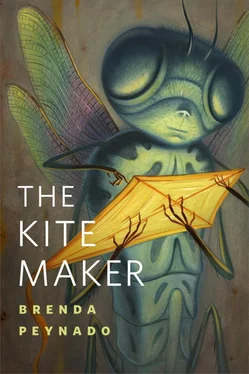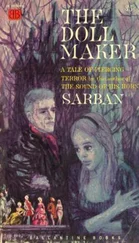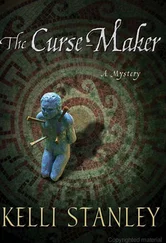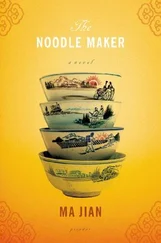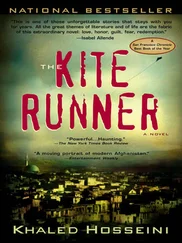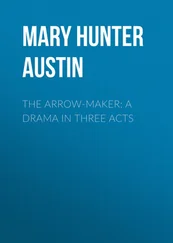I closed my car door. Mini-ark toys floated above my head, dipping around me as they fought and crash-landed in a sandpit. My boys seemed to have outgrown those games. They sat around the kitchen table watching holograms instead of homework.
Help me with my bags, I said, and it took them several seconds before they shifted to indicate they’d heard me.
My oldest, Aleo, brought in my bag of nearly finished kites I would work on later that night and tossed them in the corner of the kitchen without looking. He had a disdain for the things. Nobody at his high school wanted to look like poor alien kids, who were always flying kites and never wore clothes, only tiny threadbare baby shoes that protected the ends of their delicate legs from the pavement. Of course, no human would ever be confused with being an alien, of looking like a Dragonfly, but you might be confused with looking poor, and sometimes that was almost as bad. We weren’t poor exactly, but no matter how much money I made off of the kites, we weren’t rolling in it.
Benon hugged the paper sack of groceries. He was wide-eyed, and I knew he was bullied when Aleo wasn’t around.
How’s the schoolwork coming? I asked as I threw broccoli into a pot.
What’s cooking? Aleo asked without looking up from the hologram he’d started watching again.
Benon held his nose. I didn’t make any excuses for my cooking.
When we sat down to eat, Benon said, About homework…
Shoot, I said.
I have a history report. It can be about anything.
I froze. I knew what he would say before it was out of his mouth. Of course he would, always playing the alien in the neighborhood games.
I want to write about the Fallings, he said.
I pressed my lips together hard. Aleo shoved more food in his mouth than I thought it was possible to swallow. Something black flashed from under Aleo’s sleeve as he reached for more food. I grabbed his hand and pulled up his sleeve. What is that?
Nothing, he said, yanking his sleeve back down again. But I’d seen it. Alien script: the swoops and careful circles, the spheres with the arrows shooting out.
Is it permanent? I said. Do you even know what that means?
Aleo mumbled something.
Benon said, Mom, you were there at the Fallings. You saw it.
So did your brother. Aleo, what does it mean?
I don’t remember ship, Aleo said. I was only a few years old.
What does the tattoo mean? I insisted.
Aleo slammed his fork down. It means Aleo Laughter in the Air.
I snorted. Laughter in the Air? Really? Can you even read it?
He didn’t answer.
Mom, Benon whined, I want to know what it was like.
I didn’t say, How could you own up to all the things you’ve ever done that shamed you? How could you look backwards while stepping over the dead bodies in the way?
It changed everything, I said.
I got up from the table. I was no longer hungry. I shut myself up in the backroom for the rest of the night, turning a group of sticks smooth in the lathe. One thick, long branch was earmarked for the large kite. When I picked it up, it felt just like the weight of a baseball bat, the only weapon I’d had when I’d headed to the first Arkfall. I swung it in the air, the heft just right for making contact.
* * *
In late summer, the skinheads started setting fire to some of the shops that catered to Dragonflies. It was illegal, and also ridiculous. The world would change without them whether they wanted to or not. But a bakery down the street that had hired a Dragonfly to decorate the cakes had burned to the ground.
The skinheads were already on the wrong side of history, but it only made them cling harder to old hatreds. Some groups were angry because the Dragonflies were taking up resources, others because they’d taken their jobs. Others were staunch on no human-Dragonfly love. Our species were so different we couldn’t procreate together and the religious zealots claimed that without the sanctification of children, the union was unnatural, disgusting. Bestiality, which was a sin. Religious pundits who were horrified at what they’d done tried to justify our cruelty by saying the Dragonflies had no souls. Some of them believed that the aliens were playing a long con, coining the term: There’s more than one way to colonize an earth.
* * *
It was months before Tove walked into my shop again. I wouldn’t even have recognized him—I had a hard time differentiating them—except he had that strange way of walking like he was feeling his way around a cage. The bell tinkled, and he tiptoed in again. From Benon’s history report, from which he walked around the house spewing facts, I knew that their religions focused on the legs as the expressions of the body. The rest of their bodies were so rigid, but the legs could curl like delicate antennae. If they could express their souls, it would be through the way they walked.
We’re closing soon, I said. I hoped he did not remember my touch.
Tove’s top antennae drooped.
But if there’s something I can do? I said.
He tiptoed through the aisles of shelves, ended up at the kite wall like I knew he would. I hopped off my stool. He set his fingers to glide across the sailcloth of the cheapest kite, a red one that pictured the deserts of Mars. I could tell it wasn’t his favorite. His eyes, remarkably human, roved all over the wall.
There was one on the bottom shelf that was my own favorite, painted mostly blue like it would melt into the sky. A big no-no in the kite trade; amateurs stuck to reds and oranges, colors that would be easily seen in the clouds. But I was an artist and hated rules. I wanted the kite to blend in. I wanted the kite to look like a ripple across a mirror, like a great tide welling up under the surface. It wasn’t the cheapest, but I was determined to see it in the sky. I always made my customers take their kites across the street to the park. I told them it was to verify that they were satisfied, that the kite worked. But mostly I was watching them, trying to understand the alien emotion that racked their bodies as they let it loose.
How about this one, I said picking it up.
He purred from his throat, smashed his eyes shut against the blue.
It is not for me, he said. I would have to ask.
Who is it for? I asked.
My sons, he said.
Benon had informed me that the Dragonfly women gave all of the material gifts to the offspring, so I knew something must have happened to Tove’s mate. If the thing happened fifteen years ago, I did not want to know. My own mate had left me around that time, for another woman across the country. It made you realize you didn’t even know yourself, he’d said, that we didn’t even know who we’d become. He wanted to start over with someone else, with this new understanding. He said, as he closed the door softly for the last time on me and the kids, How can you love like that, not knowing what’s inside of you?
I hadn’t argued.
I’m sure they would love it, I told Tove. These sell quickly, so I can’t promise to hold it.
It is about choice, he said tersely in his accent. His voice sounded like a bad radio, wavering in and out. Their own language was spoken on a frequency that sounded to us like silence and hums.
Benon had told me that back on Sadiyada, none of them gave orders. If a shuttle-full of Dragonflies were about to drive over the cliff, the passengers would say, A cliff! rather than Stop! or Turn Around! They believed in pointing out what was there rather than compelling action. When they had realized their sun was about to engulf their planet, they merely built the ships, let anyone who wanted board the one-way ticket, the ships that would fall apart on atmospheric impact, and the others just stayed behind, burned up with the sun. Sons, mothers, lovers, all of them separated, and no matter the love between them, not a one would beg, Come with me. They just waved goodbye.
Читать дальше
